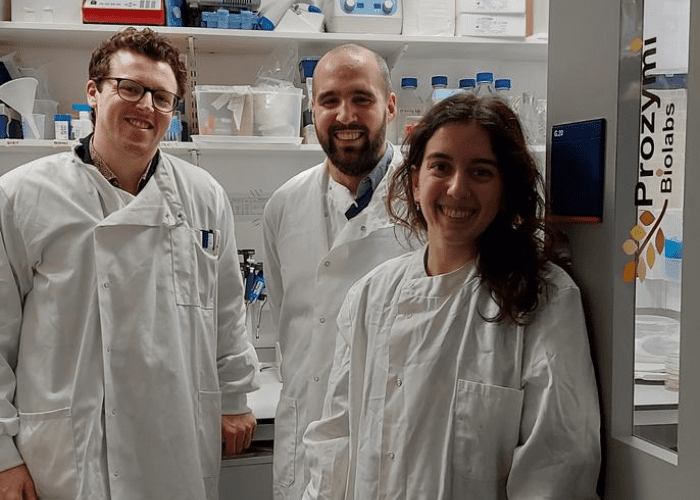AN Edinburgh-based startup is exploring a new technology that could create gluten-safe food products, such as bread, while retaining the taste and texture of the real thing.
Scientists from Prozymi Biolabs, a biotechnology business with facilities at the Roslin Innovation Centre, are testing the feasibility of a new enzyme technology that degrades gliadin – the protein in gluten responsible for provoking an immune system response and celiac disease.
By preserving the harmless parts of gluten that contribute to the taste, smell, look, and feel of regular wheat-based goods, the company aims to create gluten-safe products that address the common issues associated with existing options – starting with bread.
The research is being supported by the Industrial Biotechnology Innovation Centre (IBioIC) and received £65,000 of funding at the Scottish EDGE Awards in November 2023. The start-up also recently secured £100,000 through the Innovate UK bio-based manufacturing Launchpad competition for Scotland.
The team is currently in talks with a leading British baker to explore a potential collaboration that could lead to the creation of the first samples of a new gluten-safe loaf. Gluten will remain present in the baked goods, but with gliadin deactivated it will be safe to consume for those with an intolerance.
The substitute for wheat flour in many of the gluten-free alternatives available to shoppers is typically made up of around 7 to 14 ingredients, sourced from various countries worldwide. The startup could also lower the carbon footprint of gluten-free products by reducing reliance on imports of these ingredients.
The next step for the business will involve patenting and licensing the enzyme technology to bread producers. A range of other industries could also benefit from this approach, including pharmaceuticals, drinks, and pet food.
Prozymi Biolabs is one of 10 new companies to take part in the first Biotech Innovators programme. The initiative is designed to provide SMEs, spinouts and start-ups with access to commercial and technical expertise to help bring new bio-based products and services into the bioeconomy.
Dr Ioannis Stasinopoulos, co-founder of Prozymi Biolabs, said: “We are thrilled with the progress we have made so far. I have several close friends that are sensitive to gluten, so it is exciting to think that the technology we are developing could have an influence on the food they consume. Based on the results so far, we have the opportunity to explore other avenues, including gluten-safe beer and better quality supplements for celiacs.
“The tailored support we received through the Biotech Innovators programme has been really helpful. It enabled us to meet with other biotech startups, find investors that are relevant to our sector, and initiate collaborations with the IBioIC scale-up centres.”
Dr Liz Fletcher, director of business engagement at IBioIC, said: “Prozymi Biolabs is a brilliant testament to the impact of collaboration between science and industry, demonstrating the potential to enhance the quality of foods for people with gluten intolerance. Not only does it address the challenges of existing alternative products and the associated carbon footprint, but it also showcases the adaptability of enzyme technology across various industries. We look forward to continuing our support and witnessing Prozymi’s next steps in its effort towards a healthier and more sustainable bioeconomy.”
